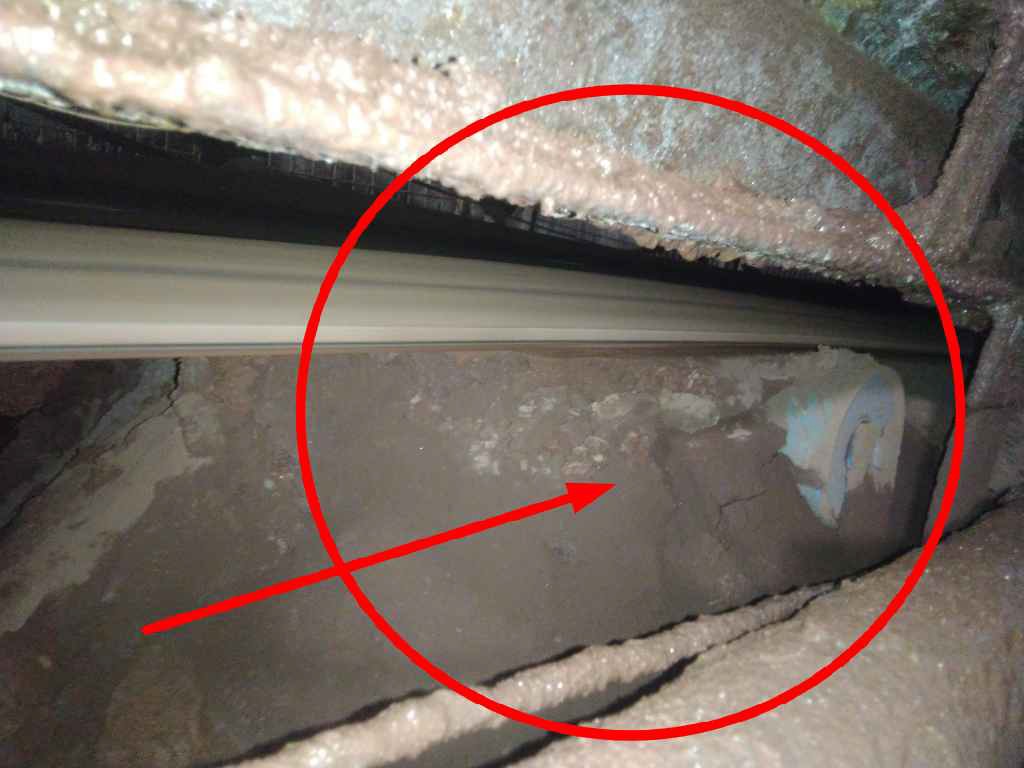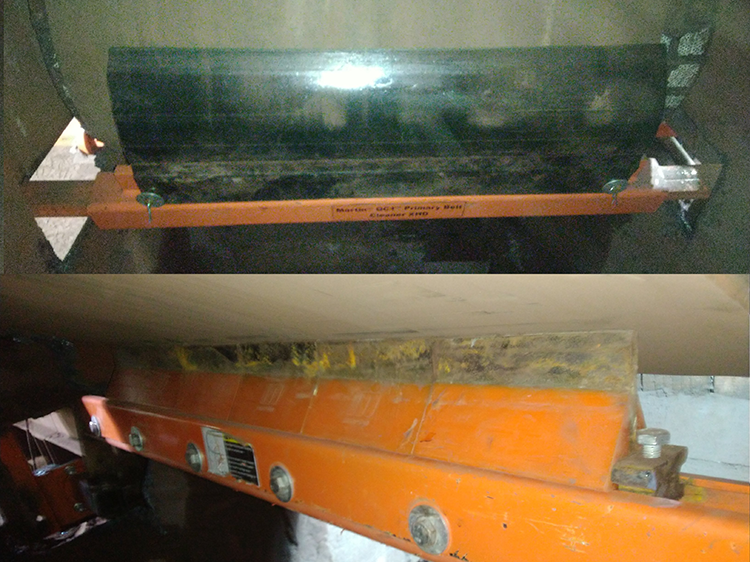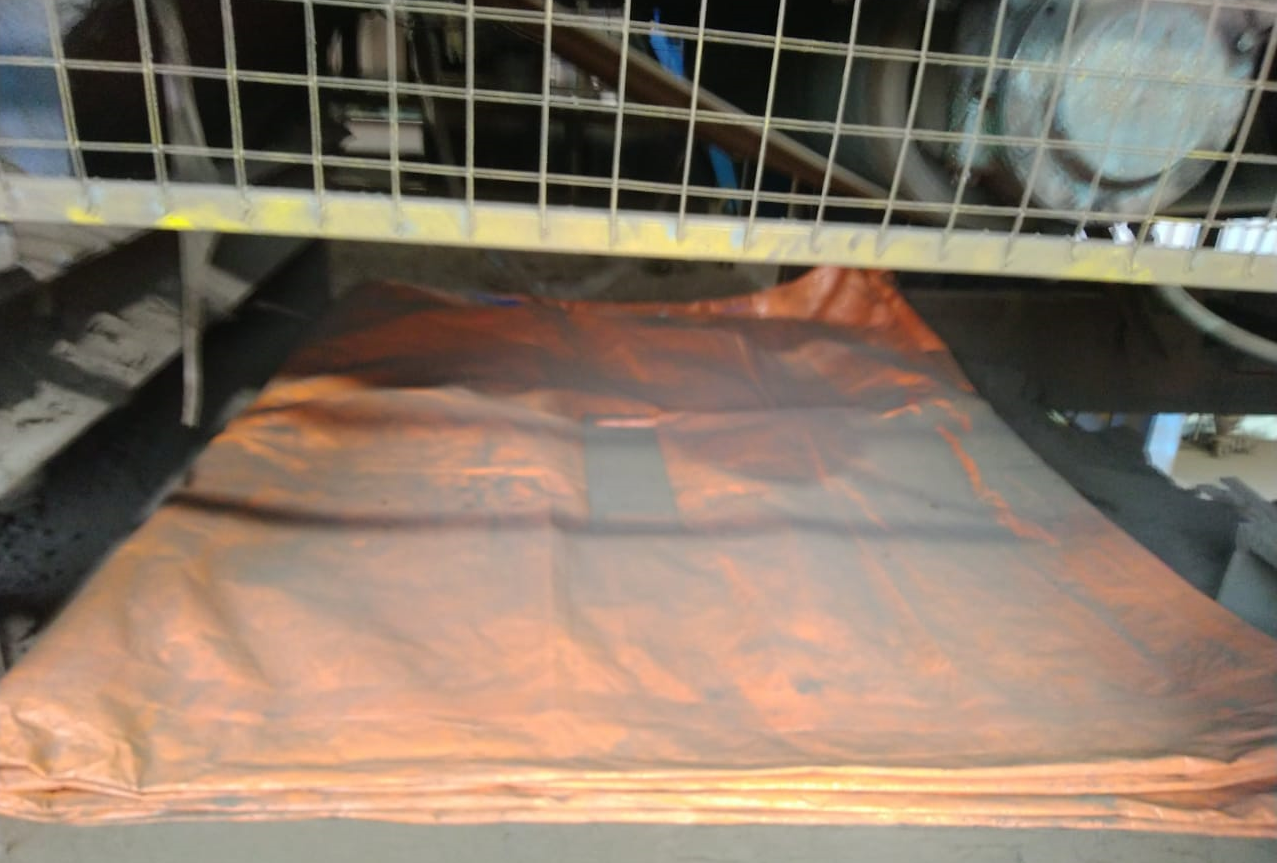| Products Used | QC1+™ Cleaner XHD |
|---|---|
| Product Types Used | Belt Cleaning Solutions , Primary Belt Cleaners , Secondary Belt Cleaners |
| Industry | Steel |
Problem
 The Tata Steel Limited (TSL) plant in Eastern India had excessive amounts of carryback due to inadequate conveyor belt cleaning. Heated material stuck to the belt and by-passed the existing cleaner, spilling cargo along the entire belt return. Operators observed large amounts of build-up around the take-up pulley, where spillage would accumulate and encapsulate rollers. Rollers often seized, with the belt riding on abrasive material, which can reduce belt life. Cleanup involved several maintenance workers and a significant amount of time and effort. The spillage also limited access to the system, which is a safety hazard. Low system efficiency, equipment replacement, and labor for cleanup raised the cost of operation, so managers sought a solution.
The Tata Steel Limited (TSL) plant in Eastern India had excessive amounts of carryback due to inadequate conveyor belt cleaning. Heated material stuck to the belt and by-passed the existing cleaner, spilling cargo along the entire belt return. Operators observed large amounts of build-up around the take-up pulley, where spillage would accumulate and encapsulate rollers. Rollers often seized, with the belt riding on abrasive material, which can reduce belt life. Cleanup involved several maintenance workers and a significant amount of time and effort. The spillage also limited access to the system, which is a safety hazard. Low system efficiency, equipment replacement, and labor for cleanup raised the cost of operation, so managers sought a solution.
Solution
 TSL management invited Martin Engineering India to examine the issue. Following the CEMA guidelines, a Martin field auditor and TSL operators decided to install a QC1™ Cleaner XHD Primary Cleaner with a green polyurethane blade and a DT2S Secondary Cleaner. The QC1 XHD (Extra Heavy Duty) is designed for rugged conditions and includes a spring tensioner to ensure the patented “CARP” (Constant Angle Radial Pressure) blade design maintains the proper cleaning pressure. The green blade is engineered for continuous temps of -40°F/C to 300°F (148ºC). The DT2S Secondary Cleaner incorporates individually- cushioned tungsten carbide blades for effective conveyor belt cleaning without damaging the belt or splice.
TSL management invited Martin Engineering India to examine the issue. Following the CEMA guidelines, a Martin field auditor and TSL operators decided to install a QC1™ Cleaner XHD Primary Cleaner with a green polyurethane blade and a DT2S Secondary Cleaner. The QC1 XHD (Extra Heavy Duty) is designed for rugged conditions and includes a spring tensioner to ensure the patented “CARP” (Constant Angle Radial Pressure) blade design maintains the proper cleaning pressure. The green blade is engineered for continuous temps of -40°F/C to 300°F (148ºC). The DT2S Secondary Cleaner incorporates individually- cushioned tungsten carbide blades for effective conveyor belt cleaning without damaging the belt or splice.
Result
 After installation, the equipment reduced the amount of carryback significantly. The primary cleaner discharged the majority of the adhered material, while the secondary cleaner removed the remaining dust and fines. Operators report that the system is now working to their satisfaction and management is "very happy" with the outcome. Maintenance has been easy, with little need for re-tensioning. Cleanup has been minimal, reduced to only routine cleanings done quickly by limited staff. Safety around the area has improved and access to the system is no longer an issue. This has lowered the cost of operation and offered an excellent return on investment (ROI).
After installation, the equipment reduced the amount of carryback significantly. The primary cleaner discharged the majority of the adhered material, while the secondary cleaner removed the remaining dust and fines. Operators report that the system is now working to their satisfaction and management is "very happy" with the outcome. Maintenance has been easy, with little need for re-tensioning. Cleanup has been minimal, reduced to only routine cleanings done quickly by limited staff. Safety around the area has improved and access to the system is no longer an issue. This has lowered the cost of operation and offered an excellent return on investment (ROI).